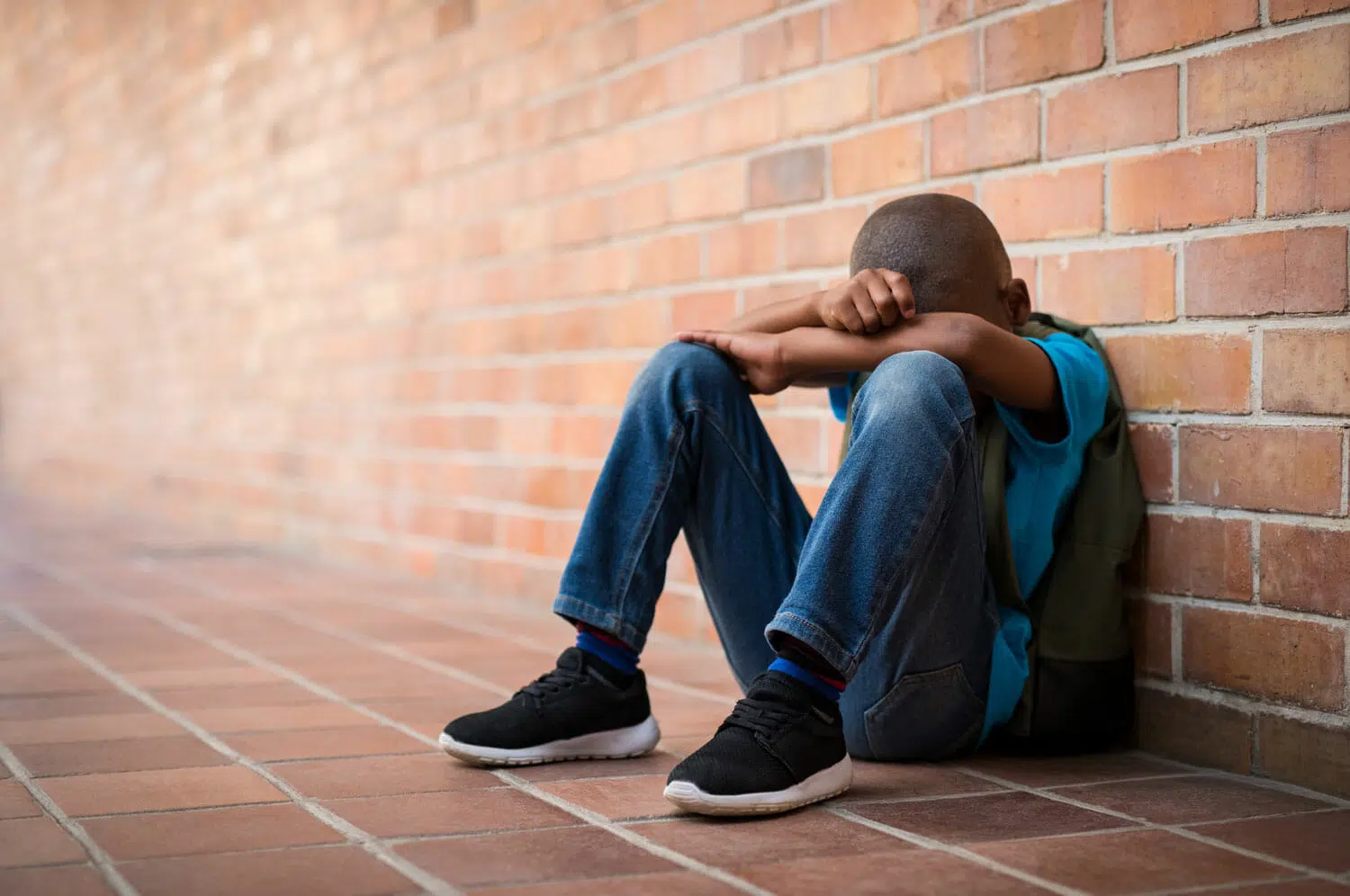Uncontested divorce is easy. You both agree you will be better off apart. You hire capable family law attorneys, sign papers, and move on. Done. Contested divorce, high conflict divorce, acrimonious divorce — that is a different beast. And it is a beast. Like a beast, it consumes time, money, mental energy, and more. High conflict divorce does real damage to your children.
1: Cause and Effect
In science, correlation is not causation. That is, one thing cannot be directly attributed to another simply because both conditions exist. This means the study of effects of divorce on children is fraught with doubt.
Perhaps, the thinking goes, that temperamental two-year-old is simply going through a phase she would have gone through, divorce or not.
Perhaps your 11-year-old is wetting the bed because his bladder has not grown up as fast as the rest of his body. Or, perhaps, he is stressed out by hearing his parents constantly fight.
One 2008 study published in the Journal of Divorce showed an elevated risk for “maladjustment” in preschool children in divorce if the parents:
- Were younger,
- Had limited financial means, and
- Were geographically uprooted during the divorce
If the divorce were not an added burden to the children’s lives, the young, poor, mobile parents might have had a chance to provide a better life for their children. But, with the divorce, the listed stressors are too much; the children suffer.
2, 3, 4: Low Conflict?
Even “low conflict” divorce — the parents are not constantly battling, arguing, or being physically or emotionally abusive — takes a toll on children. The Journal of Marriage and Family published a scholarly article examining the way in which predivorce marital conflict influences the impact of divorce on children.
Low-conflict divorce damaged children. It affected “the quality of children’s intimate relationships, social support from friends and relatives, and general psychological well-being.”
Now consider high conflict divorce. The yelling, the selfish squabbles, the possessiveness and arguments. Imagine your children hearing that, seeing notes or texts, or sitting in lawyers’ office waiting rooms while parents argue behind closed doors. The children have no outlet for the stress their parents heap upon them.
Research shows that children can be marred in many ways by divorce, as described by Very Well Family:
- Divorce may increase the risk of mental health issues
- Children often blame themselves for their parents’ divorce
- Children feel increased stress through school changes, moving to a new home, or splitting time between parents
- Divorce often leads to behavior problems in children
Admittedly, correlation is not causation; some children emerge unscathed by divorce. Some experts believe high-distress marriages ending in divorce are viewed positively by everyone involved (parents and children).
5: Disconnect
One researcher highlights the disconnect children feel when their viewpoint differs radically from their parents’ viewpoints. Say you and your argumentative wife are pursuing divorce. You may think your life is slowly improving, because you are around her less and less, arguing less often, spending less money and attention on her angry outbursts.
Yet your child, says the Institute for Family Studies, may see things much differently. You had a life before meeting your wife and her temper. Your child did not. So the “normal” atmosphere of your child’s family home is, angry shrew Mom and beaten down Dad. That is what your child expects.
Suddenly you are out of the home, meeting with lawyers, talking divorce. The family home is perhaps quieter, tenser, less busy. It feels wrong to your child.
She may hold herself to blame. She may actually miss the battles, the shouting, the commotion. Remember, that high conflict was normal family life to her. Now her view of marriage, of relationships, is thrown into turmoil. She will grow up unsure of how to handle her own relationships, her own intimacies.
6, 7: Being Blunt
Some Virginia men see divorce as a zero-sum championship game. One side wins; one side loses. Most divorce attorneys realistically view divorce as battling in a consolation bracket. Neither side really wins. You both limp away hoping to minimize the damage.
Bitter legal battles, the icing on the sad cake of a high conflict divorce, are fought on three fronts, say experts at Divorce Magazine:
- Psychological warfare
- Emotional warfare
- Legal warfare
In high conflict divorces, innocent casualties (the children) are almost always overlooked as parents tussle and fight over everything. In their blood lust to prevent “the other side” from getting something, parents are blinded by their own pain and confusion. These parents will plow right through their children’s emotional, psychological and physical wellbeing.
To put it bluntly, Divorce Magazine says children suffer in the emotional chaos of high conflict divorce. The magazine’s reporting shows that some 80 percent of the time, children in high conflict divorce are never even given satisfactory explanations of the circumstances or causes of the divorce.
8: Permanent Scars
The scars caused by high conflict divorce can stay with children into their own adulthoods. Psychology Today provides a very sad laundry list of direct negative effects of high conflict:
- Children model their parents’ negative behaviors
- Children fail to learn appropriate social interaction skills
- Children suffer physiological effects
- Children feel invisible, torn between allegiances to both parents and feeling used as weapons against the other parent
- Children dissociate when torn between two homes, having to learn two sets of house rules and two sets of parental interactions
We’re Divorce Lawyers for Men
At The Firm For Men we focus on helping Virginia’s men prevent all damage — damage to reputations, finances, peace of mind — in legal matters. Contact us online or call our offices at 757-383-9184. We will help you retain your rights, retain that close connection to your children, and resolve your divorce amicably.

